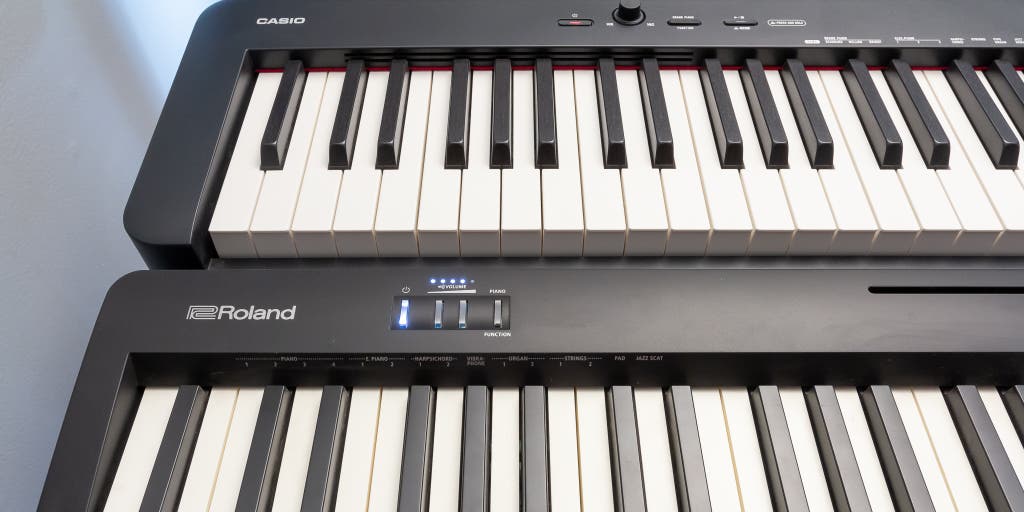1. Introduction
Playing the digital piano is a great way to learn a new skill and make music. Whether you are just starting out or already have some experience, there is something for everyone. The digital piano has many advantages over traditional acoustic pianos, including portability, affordability, and the ability to use technology to enhance your playing. In this article, we will discuss the benefits of learning how to play the digital piano, how to choose the right one for you, and provide tips for beginners on how to get started.
2. Benefits of Learning to Play the Digital Piano
There are many benefits to learning how to play the digital piano. It can be a great way to express yourself musically and explore different genres of music. It can also be an enjoyable hobby that can help reduce stress and improve mental acuity. Additionally, playing the digital piano can help improve coordination and motor skills.
3. Choosing the Right Digital Piano for You
When choosing a digital piano, it is important to consider your budget, level of experience, and desired features. A good place to start is by looking at different types of instruments such as keyboards, synthesizers, or hybrid pianos. Each type has its own unique sound and features that may be more suitable for your needs. It is also important to consider size and portability if you plan on taking your instrument with you on gigs or lessons.
4. Basics of Playing the Digital Piano
Once you have chosen your instrument, it is time to learn the basics of playing it. This includes understanding the layout of the keys and their associated notes, as well as learning proper hand posture and fingering techniques. Additionally, it is important to familiarize yourself with basic music theory concepts such as scales and chords so that you can begin playing simple melodies and songs.
5. Different Types of Digital Pianos and Their Features
There are several types of digital pianos available on the market today, each with its own unique features and capabilities. Some of these include keyboards with weighted keys that simulate an acoustic piano’s feel; synthesizers with built-in sounds; portable models that are great for travel; and hybrid pianos that combine both keyboard and synthesizer elements in one instrument. Additionally, many models come with built-in effects such as reverb or chorus which can add depth and texture to your sound.
6. Learning Music Theory for Beginners
Learning basic music theory is essential for any musician who wants to progress beyond playing simple melodies or tunes from sheet music. Music theory covers topics such as scales, chords, intervals, cadences, harmony, rhythm, form, counterpoint, ear training and improvisation which are all important elements in creating interesting pieces of music on any instrument including the digital piano.
7. Practicing Techniques for Beginners
Practice makes perfect! As a beginner on the digital piano it is important to develop good practice habits so that you can make steady progress towards mastering your instrument. One effective technique is breaking down difficult pieces into smaller sections and practicing those sections until they become second nature before moving onto another section or piece of music. Additionally, it is important to practice regularly in order to build up finger strength and dexterity as well as develop muscle memory so that playing comes more naturally over time.
8. Using Technology to Enhance Your Playing Skills
Technology has made it easier than ever before for musicians to enhance their skills on any instrument including the digital piano. There are now apps available which can teach you how to play different pieces or provide feedback on your performance in real-time through audio recordings or video tutorials from experienced teachers or performers from around the world! Additionally there are virtual instruments which allow you to experiment with different sounds without having access to expensive hardware synths or samplers—allowing you create unique pieces of music from anywhere at any time!
9 . Finding Resources To Help You Learn How To Play The Digital Piano
Learning how to play an instrument doesn’t have to be done alone—there are plenty of resources available online which can help guide you through every step of your musical journey! From online courses covering everything from basic technique through advanced composition; tutorials covering specific topics such as improvisation or arranging; forums where experienced players can answer questions; social media groups where musicians share tips; books providing insight into different genres; magazines full of interviews with professional players—the list goes on! With so many resources available it’s never been easier for beginners (and experienced players) alike find what they need in order to become better musicians!
10 . Performing On The Digital Piano
Once you have mastered some basic techniques it’s time take things up a notch by performing live! Whether it’s a recital at school or an open mic night at a local bar—performing live can be a great way test out what you’ve learned while getting valuable feedback from an audience (which will help motivate you even further!). Additionally there are now online platforms like Twitch where musicians can livestream their performances in front of thousands viewers—allowing them reach even wider audiences than ever before!

